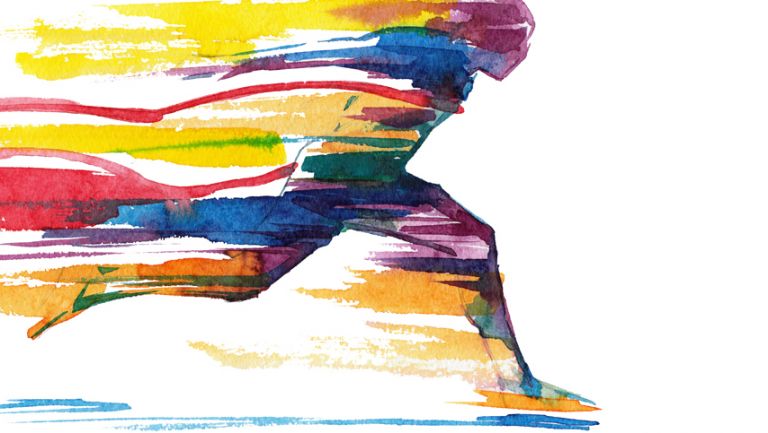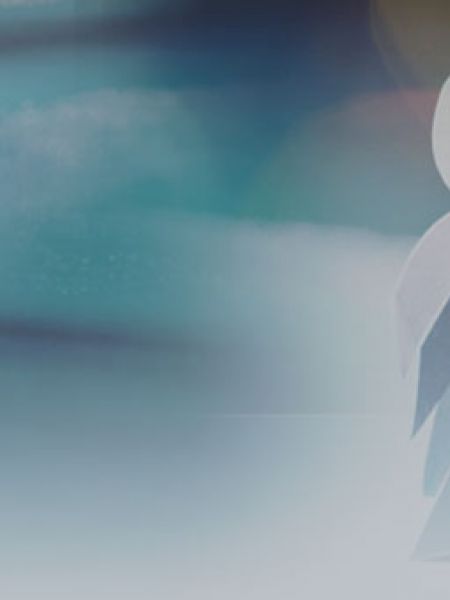Sign up for our monthly newsletter

What is a CEthO? And does your organisation need one?
It's a big question that many organisations are grappling with: How to be a successful, expanding company in a crowded marketplace whilst also ensuring you operate ethically and responsibly at all times?
During the past decade the idea of taking a more structured approach to corporate ethics has gained some momentum. We now see an increasing number of companies employing Chief Ethics Officers, Ethics and Compliance Officers or even the snappy-sounding CethO.
But is there a right way and a wrong way to do this? And how do you ensure that a commitment to ethical business runs deep and avoids becoming window dressing? Few things are as important to ThinkPlace as our commitment to making the world a better place through our work. It’s something that’s deeply connected to our sense of purpose.
We sat down with the man charged with making sure we stay true to our principles – ThinkPlace Partner and Chief Ethicist Darren Menachemson.
Q: So you’re the Chief Ethicist at ThinkPlace. What does that mean?
DM: ThinkPlace's mission is to use design to have a positive impact on the world. That impact needs to start with us, and how we conduct our work and choose our projects. Every day, every ThinkPlacer will make decisions that will have an impact on the broader community. The Chief Ethicist role - the CEthO - was created to make sure that those decisions align with our values and our mission.
Q: Why do we have a Chief Ethicist? How does this relate to our growth as a global operator as well as our guiding sense of purpose and identity?
DM: ThinkPlace works around the world, partnering with governments, NGOs and communities to design in some of the most complex, sensitive spaces in society. One week we may be designing a new regulatory program in Australia, the next researching barriers for new mothers trying to raise healthy babies in Kenya, and the week after we may be prototyping a new service for vulnerable New Zealanders.
In work as complex and diverse as this, we will inevitably confront questions like "What should we do here?" Some of these can be resolved just by following ThinkPlace policies, and others are unique to a situation and mean that we need to go beyond our policy to do good and avoid doing harm. This ethical introspection starts right at the point where we choose to take on a project, or refuse it because we feel it will lead to a harmful outcome, and sustains at every point - from how we conduct research, to how we facilitate co-design conversations, to how we design new programs or services.
The Chief Ethicist helps by taking responsibility for making sure our policies are as helpful for ethics navigation as they can be, for getting people to grapple deeply with simulated ethical dilemma scenarios in preparation for their occurring in a real-world context, and for being a senior source of ethical advice and direction whenever it's needed.

Q: How did you arrive at this position? What makes you suited to it?
DM: I proposed the position at a global executive meeting few years ago, at the same meeting where we collectively decided to shift our orientation from "public good" to "public good focused on the UN's Sustainable Development Goals". The executive was immediately and unanimously in favour of making it happen.
While I am the first incumbent, we see it as a rotating role. I've really enjoyed establishing how it will work and I will soon turn it over to another member of our leadership team. From July, ThinkPlace Principal Ben Evans will take over form me as CEthO. He'll be fantastic at taking a sophisticated view of what "public good" and "public harm" means, and looking both at the immediate ethical implications of decisions and at their wider and often subtler impact on society in a longer term.
A Chief Ethicist needs to embrace complexity, and the tensions that come with it. They must be able to communicate the ethical question at hand and why it is important to tackle - and help guide and inspire people to practical action. And most importantly, they need to be able to shape and sustain an organisation's culture so that ethical action is an essential part of how everyone works, every minute of every day.
ThinkPlace has always had a strong ethical core, so in our case, it felt quite natural to head in this more formal direction.

Q: Is this a position that is becoming more prevalent across the corporate world or is it an anomaly?
DM: It's a bit lumpy to be honest - looking around, we see some corporates who are taking ethics on actively, and weaving it strongly and overtly into their culture and their governance. Where this happens and takes hold, it has a powerful effect, and is the type of long-term thinking we need to create a better world for our kids, and their kids.
On the other hand, we often see organisations relying on policies and audit-style arrangements that feel more like legal and brand compliance measures than an investment in values.
Ultimately, the deeper your ethics are woven into your business, the harder it becomes to say "yes" to operating in a way that is harmful to society or the environment. This has both real and perceived implications on the maximisation of profit.
The truth is that businesses can be forces for good in the world and be commercially successful - it's not a trade-off, it's a design challenge. Shifting to a stronger ethical posture can inspire transformative "shared value" business models and innovative investments which can make a business more successful, not less.
Appointing a CEthO is a major step in choosing to take this challenge on.
Q: Tell us about how ethics work at ThinkPlace. How do we ensure that projects we take on are making the world a better place and not causing harm?
DM: As my first action as CEthO, I brought a group together with membership from every ThinkPlace studio around the world to develop an approach to ethical screening. When we take on a new client or have doubts about the ethics of a project we're considering taking on, we conduct an ethics screen. The screen asks whether we may end up contributing to a harmful project, or supporting an intrinsically harmful organisation or industry. Anyone can trigger an ethical screen, but if any ethical issues are identified, they are raised with the CEthO who may also raise it with the wider executive. If we feel that the client or the project will represent a net harm on society, or if working with them would not be in keeping with our ethics and values, we choose not to participate.
Of course, we also establish a strong authorising environment where, if a ThinkPlacer feels that on a project, they are being asked to participate in abetting a societal harm, they can raise the issue and this may result in our working with the client to deal with the harm, or withdrawing from the project. We also try to prepare our people to respond to ethical issues in the right way. For example, several times a year, we run ethics conversations for staff where we consider an ethical dilemma and discuss how we could and should react to it.
This is supported by an ethics framework that includes a code of conduct, and a number of policies and programs that ensure we work in an ethical way - both on clients projects, and on internal projects and operational processes as well.
Q: This is important to you. Why?
DM: Our work often places us face-to-face with people experiencing vulnerability. We find ourselves facilitating conversations with inspiring people who are actively working towards a better world. We spend time talking with other ThinkPlacers about design decisions and how these will affect society at every scale. These are the voices that stay with us, demand more out of us, and help us be an advocate for and contributor to the public good.
And personally, it lets me feel that I am taking personal accountability for the world I will leave behind for my daughter. That's important to me.







